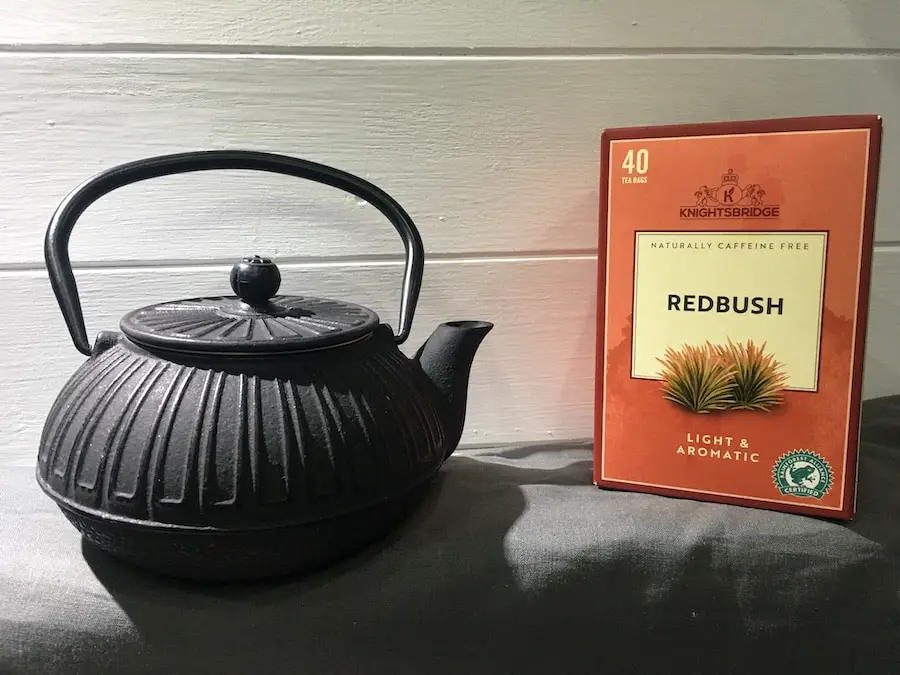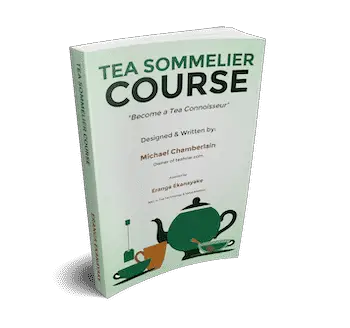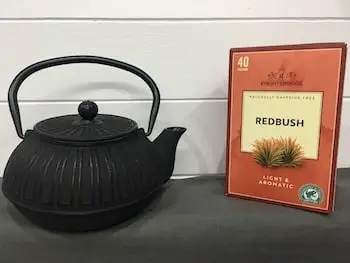Wondering does Rooibos Tea have Tannins? I’ve done the research on this to bring you the relevant data and information regarding tannins in Rooibos Tea tannins when compared to other teas. Let’s get straight into it…
Rooibos Tea contains 4.4% tannins in its content. Rooibos is an herbal drink and not a true tea variety. Tannins are reduced because Rooibos is not from the tea plant “Camellia Sinensis,” but from a shrub called “Aspalathus linearis”. There are therefore differences in tannins and other factors.
Does rooibos tea have tannins?
That’s the summary provided, you can find out all about Rooibos Tea in my Rooibos Tea 101 Guide. But on the subject of tannins, let’s head into more detail on this…
Rooibos tannin content compared to other teas
Here’s a table from a study into tannin content in tea. A variety of the same teas (Black, Green, and Oolong) were tested from both the USA and Bengal.
To keep this simple, I’ve distilled the data down to a straightforward range of tannin percentages.
| Tea Type | Tannin Percentage Range |
| Black Tea | 11% to 15% (avg 13%) |
| Green Tea | 2.3% to 3.1% (avg 2.6%) |
| Oolong Tea | 7.6% to 8.6% (avg 8.6%) |
| Rooibos Tea | avg 4.4% (not part of the study) |
Some figures extrapolated from partial data

More about tannins
Tannins are naturally occurring compounds present in many plant foods, which include true tea varieties made from the “Camellia Sinensis.
This is why some of the true tea varieties, particularly Black Tea, and Oolong Tea are rich in tannin, with Black Tea having the highest tannin concentration, almost double that of Oolong.
Rooibos Tea sits at around 4.4 percent of tannin content. The main reason why people get confused as to whether Rooibos Tea has tannin is that it’s referred to as a “tea” but it’s actually an herbal drink … just with low tannin content.
There are several reasons why an attribute or support the low tannin content of Rooibos Tea. I’ve outlined some of these as follows.
No Astringent taste
The astringent taste of true tea varieties such as the sharp bitter taste that causes a slight numbness in the tongues is not present in Rooibos Tea.
This is because the astringent taste properties come to tea only from a high concentration of tannins.
Rooibos Tea doesn’t exhibit any of these astringent taste profiles …and in fact, it can come across for many drinkers as naturally sweet and not bitter. This is also why Rooibos Tea is also called the “naturally sweet Tea”.
Versatile features
The tannin content in tea usually makes the Tea very sensitive to steeping times and has a narrow margin of error.
By this I mean if you steep any tea variety with a high concentration of tannins, it can turn bitter quickly.
Rooibos on the other hand is pretty versatile. Meaning you can leave Rooibos Tea to steep as long as you want and it will almost remain without bitterness, because of the lower tannin concentration.
No teeth stains
Tannins in teas and coffees are the primary reason for teeth stains.
It’s when the tannins in beverages like true tea varieties and coffee build upon the tooth enamel, you get tooth stains and discoloration.
Surprisingly Rooibos Tea doesn’t stain teeth, because of its very low tannin content.
Alongside this, Rooibos Tea also has a low acidity in terms of acidic content of tea and does not produce catechins during processing, which also supports lower staining of teeth.
Find out more about why Rooibos Tea doesn’t stain teeth.
Lower effect on the body’s iron absorption
Tannins in true tea varieties (Those made from Camellia Sinensis) can interfere with the body iron absorption rate.
They do this by binding to the iron after having a cup of tea, not allowing the iron to be absorbed.
More specifically though, tannins interfere with non-heme irons, those that come from plants.
Surprisingly according to the results of a 2013 study, drinking a cup of Rooibos Tea daily for 6 weeks, did not bring any impact to the participant’s iron absorption rate.
This undoubtedly supports the low tannin concentration Rooibos Tea has.
Helps with high antioxidant intake
Tea has high antioxidant, however, the high tannin and caffeine concentration in tea limits tea intake for a certain recommended cups per day.
However, Rooibos Tea is caffeine-free, and as we said it’s low in tannins, allowing it to be consumed in larger quantities, helping with a higher total antioxidant intake than Green or Black Tea.
See also
Tannin in tea, what you need to know

Take the fast track and become a tea connoisseur
Whether for enjoyment or considering a career as a tea sommelier. This course has everything you need to enhance your tea knowledge and tea-tasting skills.
This course keeps it simple with step-by-step tea tasting and easy reference guides
For pleasure, or as a precursor to a career in the tea industry. Find out what tea sommelier actually does, their career paths, and what they earn.

Find out more about the Teahow Tea Sommelier Course!
Find out more about the Teahow Tea Sommelier Course!
